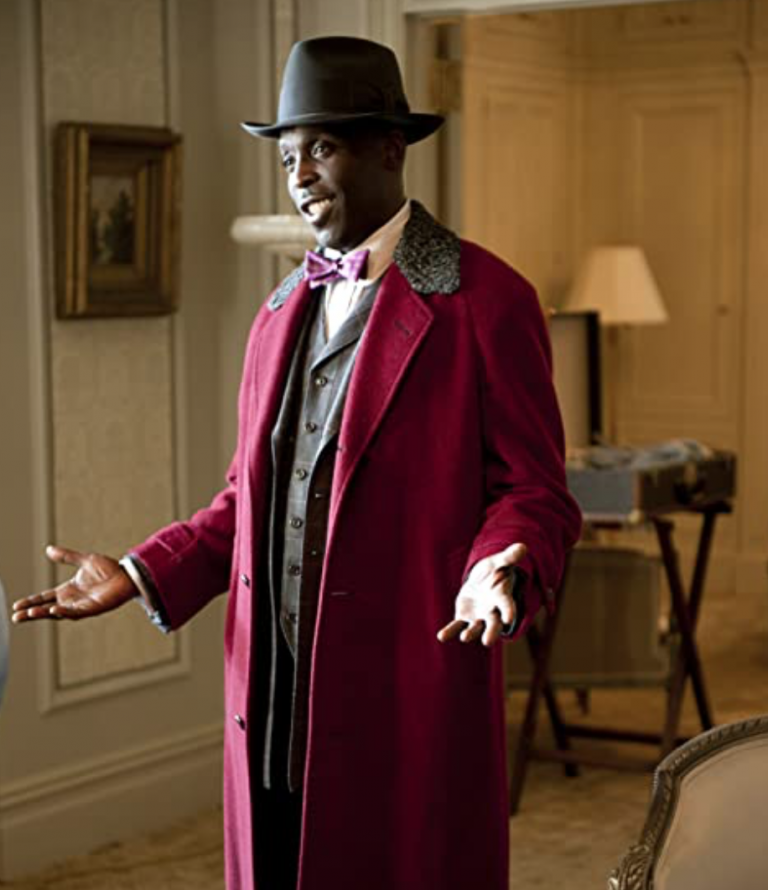
We all shocked to learn about the untimely death of Michael Kenneth Williams, an actor known for his roles in The Wire, Boardwalk Empire and Lovecraft Country, has died last Monday, He was only 54. But we also remembered his magnificent performance throughout his career. So I decided to look for my Q&A coverage of Michael which was conducted by Hudson Union Society event in 2016, to remember his legacy.
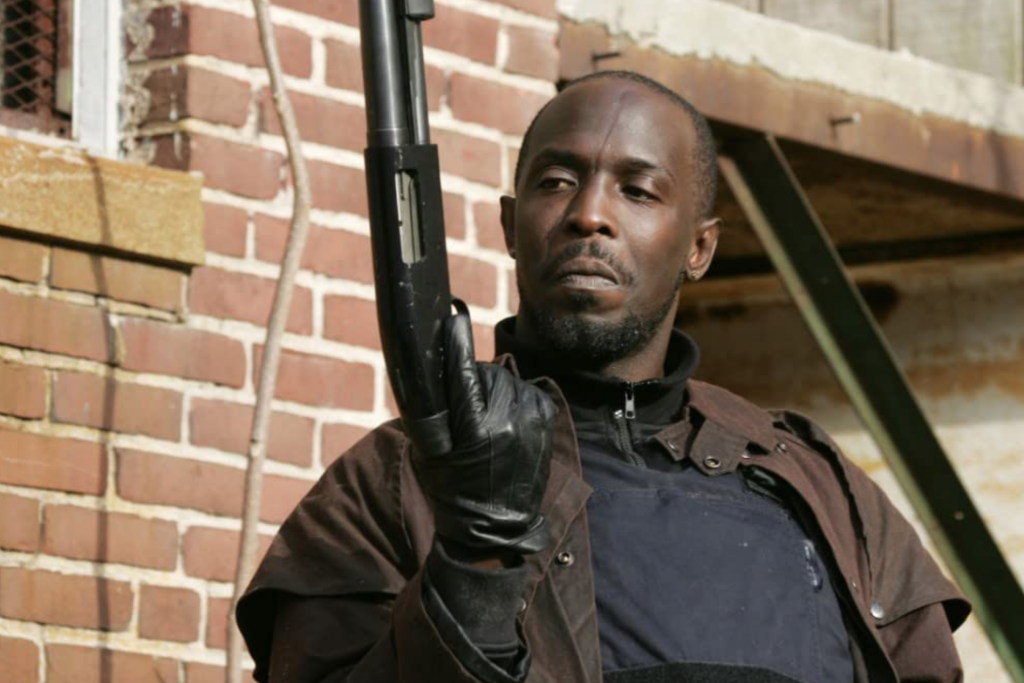
Actor Michael Williams Talks About HBO’s The Wire.
Q: Can you tell us why is “The Wire” considered to be the best television show of all time?
MKW: I think it’s honesty. And then it wasn’t trying to sensationalize anything. David(Simon=Creator) told a story about a glitch, something that was wrong in the system and it just happened to be at his home in Baltimore, But it was never about glamorizing or trying to tantalize people with sensations. It was telling an honest true story about what was going wrong with our country. And I think that’s what resonated mostly with people. It wasn’t a black story, it wasn’t a white story, it was an American story about our cities and the breakdown in our social system.
His Character Omar.
Q: President Obama says it’s one of the most fascinating characters of all time on television and his favorite character. Tell us about this character. He’s incredible: he’s an honest person, he’s almost like a Robin Hood, and on top of that it brought in a new type of character that’s a Robin Hood that’s a drug dealer that’s gay, and he does great and gives to certain elements that he robs from. He gives to other elements that need it in this really, really hostile environment. Tell us about this character. It’s one of the most intriguing characters ever written for television.
MKW: Omar was not a drug dealer.
Q: You’re right. Omar stole from the drug dealers.
MKW: I think what President Obama was attracted to was not his lifestyle. It was the fact that you could set your clock by his lifestyle. He had a code, a moral code, whether you agreed or disagreed with it. There were certain things that he would not do because he did not believe in that and good, bad, indifferent, ugly, however the saying goes, that was who he was. He didn’t apologize for who he was. He was honest and transparent.
His Favorite Episode
Q: What is your favorite episode, because there are so many amazing episodes you’re in. There must be something that stands out, and why?
MKW: My favorite episode was actually the one I hated the most, which was the day that Omar had to kill his friend. I hated that. I hated that for a number of reasons. One is I hated the fact that I didn’t want these two dark-skinned kings — and I hated that image I had been battling with my whole life – perpetuating the problem with my art. What am I telling the kids? That it’s okay to kill people that look like you? That hurt. I had a really hard time with that.
And then I had to deal with the fact that I’m losing a co-worker. Idris is my brother, we still kickin’ when we get a chance to now and then. So it was a lot of different emotions, and this is all new to me as a thespian coming to this business.
This is a part of the industry I had never seen before, and it was hard. I remember being so against the whole scene that the day we were called to shoot it, I was brought to tears. I was nervous, I was shaking. This was a very new space for me and I just did not know how to deal with the emotions of having to go to a place where I have to kill someone that in my real life I care about. I have to make that real. I can’t fake that. So I have to really now turn on this energy and go there. And it was just one of the most ugly scenes I ever felt bad for that I ever did.
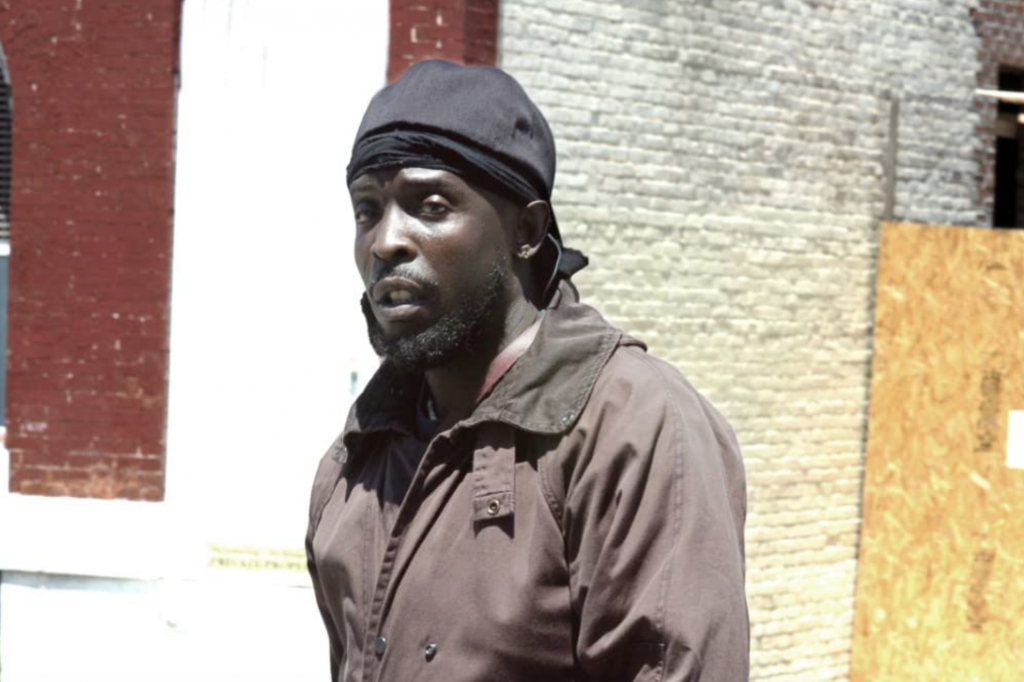
His Death Scene
Q: One of the most powerful scenes in all The Wire is in the fifth season when you are in a grocery store and all these different characters – drug dealers – are trying to assassinate you. And the one person that ends up killing you is this young kid who looks like he’s younger than ten years old just comes up behind you point-blank. And it’s just such a powerful scene. When did David let you see that script in advance? Because when you see that on screen, it was just unbelievable.
MKW: David didn’t let you see shit in advance.
Q: So it was basically like “The Sopranos”, all surprises.
MKW: You got it when it came off the presses. I remember that one of the first times that I was on set and I was called to rehearsal, it was in the projects. I was being walked back to the base camp and I saw this kid. It was a school day, at a school time, school hours, and this kid was, to my knowledge, visibly someone who should have been in school when he was out in the courtyards. And he was dangling this bag and it had all these pills in it. I remember looking at him, “Wow, those props – that kid is ready. Those props look real.” And she(production Assistant) said “We don’t know him.” And that’s when I knew what was happening in the streets of Baltimore.
I’ve met this one young man during my time in Baltimore, maybe sixteen years old, and at this time he was already responsible for maybe thirty bodies. So when you see the Baltimore riots over our kids, those children out there revolted, and so when I say that, I mean the passion of the youth in Baltimore is paramount. Those kids, the young people in the streets of Baltimore are very passionate, very artistic, very outspoken. There’s a lot of fire in the blood. We don’t have a lot of misdirected anger.
So the way that assignment had Omar go out, it wasn’t about Omar. It was about the future generation. To me, it was not about Omar — it was about, we don’t need any more Omars. We need to stop letting our kids down in the streets. It’s like the same thing in African where those kids have been recruited to be soldiers. To me that’s what Omar’s death spoke to. Omar was dead the minute he left Puerto Rico. You know here he was dead, you knew he was not coming back.
So it was not about everybody wanted to see two black men, Omar and Marlo [Jamie Hector] — it wasn’t about seeing two black men kill each other in the street, it wasn’t about any of that sensationalism. That’s what David did not do. He did not give you what you wanted to see, he gave you what you needed to see.
What you didn’t see was that at the end of the day, “The Wire” was edutainment. It was, “Yeah, everybody enjoyed these characters, but we don’t need any more of these characters.” These characters are based on real people and real lives. A lot of men and women died on those streets of Baltimore so that we could tell these stories, so we could become actors or have careers, and I don’t take that lightly. That’s just my thing.
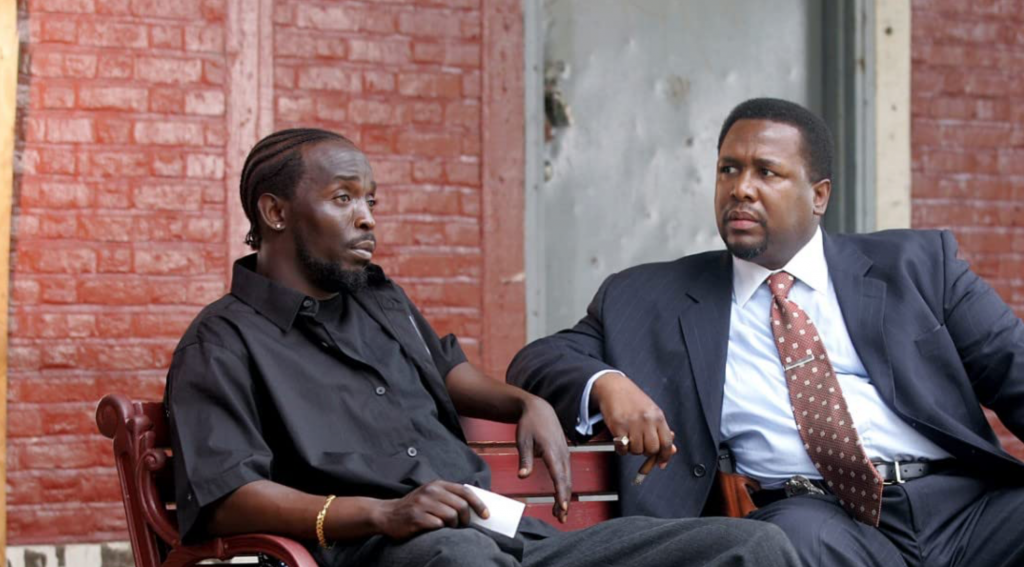
Killing the Hope
Q: One of the things I found incredible when you talk about the educational value of Omar being whacked. Any time something happened it would really cause a discourse. People would start talking about it, the press would start talking about it. It was so shocking and it was so powerful that a child could do this. Same exact thing with Marlo: just the amount of what he’s doing with the bodies and stuff every time, every season, and you thought you couldn’t be shocked anymore. And it wasn’t shocking glorification.
MKW: It wasn’t about who died, it was about what they were trying to do when they got killed off. What David did – this may be his one little guilty pleasure to like sensationalize, but he tortured people with this – I believe he killed the hope. Every time a character was getting ready or trying to come out of the hood or tried to make a change, or revolting against the street system, they would take him out.
Q: Look at Stringer Bell in the first season, a perfect example. It’s the season that he gets murdered – Season Three.
MKW: Did you watch “The Wire”?
Q: I sure watched “The Wire.” I loved “The Wire.” I’ve watched it multiple times. No, when [Bell] is assassinated by Nick. A story with [someone] like Stringer Bell is a perfect story. He’s basically educating himself, he’s going to school for an MBA, he’s taking [his] and Avon’s money and reinvesting it in legitimate enterprises which are impressive. He’s looking for the return on investment and all types of stuff. And then he ends up getting killed – like you said: the dream, the hope. There is no hope in the ‘hood.
MKW: It’s not the fact that there is no hope in the ‘hood. It’s the fact that that’s the work that you can put in the hood, is hope. Unfortunately, what we’re most afraid of is hope — expectation and having it get your heart broken, or having things dangled in front of you and then taken away. It hurts. So sometimes hope is the worst thing . . . it’s like a false thing, this false hope. This false thing you believe in. Instead of putting real, tangible situations, opportunities, programs, into the communities. Don’t come with your hope, that’s the worst thing you can do. So that’s why I believe David Simon killed the hope.
Q: People don’t want to be hurt anymore.
MKW: No! I know I don’t. Speaking for myself as a man coming from an underdeveloped community, it hurts to dare to dream. The trick is not making it out the hood; the trick is being welcomed back.
Fighting to Keep the Show Alive
Q: What is the backstory of why HBO picked up this incredible show, “The Wire”?
MKW: I couldn’t answer that. I really couldn’t answer that. I could tell you that we fought for every renewal of the season. It was never like “Oh wow, we have an agreement for next season.” It was always like “Will it get picked up? Are they going to raise our budget, give us a raise?” We had to fight for every season. So I couldn’t tell you why they decided to pick the show up in the first place, but we prayed and fought for every season that we got.
Q: But why would you have to fight for every season? The quality of this, it hits you from that first episode to the last episode. It hits you in the heart, like a truck going full speed at you. The quality! Why would you guys have to fight for it?
MKW: Well, HBO, like every other station or studio in this business is a business, and they’re in the business of selling entertainment. You have to adhere to what’s happening out there, and “The Wire” was the first of its kind. “The Wire” was the first time I heard two phrases: “edutainment” and “binge-watching television”. It was the first time we’d ever seen anything like this, and it was “will it sell?” They had a deadline and the numbers to adhere to.
Q: But by the fifth season, the popularity among the critics almost universal, and audiences were really, really tuned in. Why did it stop at the end of five seasons? Because for all of us, we could have had this go on for eternity. Did David Simon want it to end?
MKW: I have to disagree with you. Yeah, the critics were giving us great reviews, but “The Wire” had a nickname: it was “the greatest show on television that no one was watching”. The show didn’t get successful until it went off the air.
Q: That fifth season – it wasn’t because David figured that this was the arc, it should end here, or it was HBO deciding they didn’t want to go further anymore?
MKW: Again, I can’t swear to this, but I think that David had known from the beginning that it was a five-year plan. I heard him say many times – people often ask him “Come on, please give us a sixth season” and he would say “You want a sixth season? Watch the fifth season”. That was it. He’d told his story.
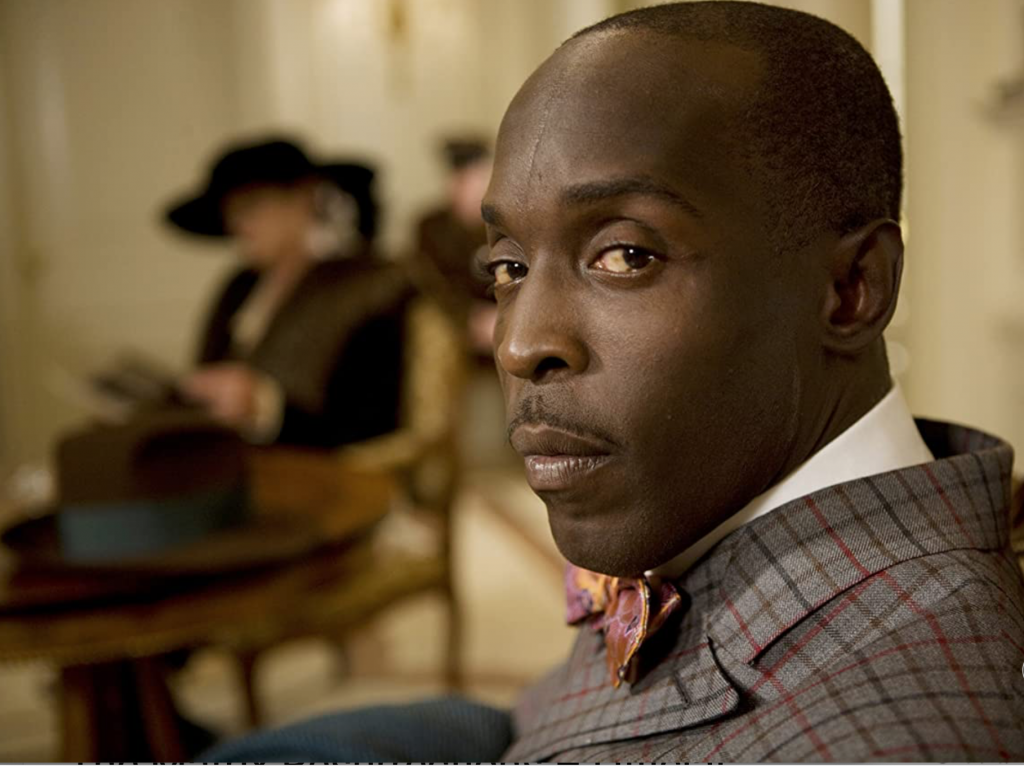
Getting Involved with Boardwalk Empire
Q: How did you get involved with Boardwalk Empire? Was it Martin Scorsese?
MKW: Marty loves me.
Q: That’s what I figured. How did the transition happen?
MKW: I was in Cape Town with Neve Campbell and James Purefoy, my BFF from “Hap & Leonard.” We were in Cape Town from the TV show for NBC. And not to sound too hocus pocus, but I really believe in following your heart. I was down there in the show and making a shitload of money, and I was really being very disrespectful with myself and my instrument, reckless with my life. And I woke up one day and I said “You know, Mike, if this show gets picked up for a second season and you continue like this, you’re probably going to die out there.”
So I spoke to my Higher Power and I said “I think this job is not for me.” And I wrestled with that notion, because there are a lot of black actors in America that wish they had this job. I guess I’ll just suck it up and be a man and just be grateful that I got this job. But in my heart, I was like, But Mike, this is not for you. So I prayed, “God, give me a sign. If I’m supposed to stay here, give me a sign, and I’m going to man up and I’m going to do this job. If You think this ain’t right for me, give me a sign in the mouth.” That same week I got the call from “Boardwalk Empire.”
Q: You got the call from Marty?
MKW: I didn’t get the call directly from Marty. His assistant called me. I got the call to put myself on tape and my first thought was Okay, this must be the sign I prayed for. Then I thought it was too good to be true. So I said, Right. Marty’s gonna cast me from my tape, halfway around the world.” My agent said “Well, Mike, if you don’t at least put your name in the hat, you don’t get the chance. At least go for it.” And with that word “hope”, that ugly word, here we go. So I put myself on tape and sent it in from Cape Town, South Africa, and they cast me.
A Character Chalky White
Q: You see these scripts but you take the character off the page and you make them your own. Because when you watch Chalky White on the screen, it almost feels like you’re making him so authentic, so real, that what you’re watching almost feels historic. Was Chalky White based on a true-life person?
MKW: First, thank you. Yeah, Chalky was scary for me. When you read them on paper, there were remnants, you could see where okay, it feels like Omar, he could have been like maybe grandfather.
Q: But both of them are interesting. They have a code, Chalky dresses impeccably, in suits, everything.
MKW: Well, they’re definitely cut from a similar cloth. I got intimidated because I really did not want to have these two men feel alike. I wanted to make them as separated as possible. With Omar, I had my childhood and people that I’ve seen come up in Brooklyn and East Flatbush to mimic after, and I didn’t have that per se for Chalky. It was a different era, so I had to dig deeper.
I decided to go to five men in my family, who were all deceased, who all lived in Chalky’s era – were born in Chalky’s era. My first was my father, my second was his brother, my Uncle Jay. The third was my uncle, my mother’s brother, and then the fourth was my godfather, Julian. And the last was my Uncle Tommy, my father’s brother. I picked different characteristics and ways and personality traits that I remembered about them as a kid.
I used the scripts of Boardwalk and Chalky’s experience as a window to see what they went through and what made them the men that they were at the time in my life when I was a child looking up at them, like in awe of these men. That’s pretty much how I created Chalky.
He wore his clothes like my father did. When he was with his kids, he reminded me of Uncle Jay, when I would sit on my uncle’s lap and he was always scratching his beard. [Chalky] was kindof sarcastic, kindof coy – that was my Uncle Tommy. When [Chalky] murdered you and you pissed him off and he was ready to kill you, that was Uncle Parr. And that snarl and the way he walked – that was my godfather. The only thing missing was the gold teeth.
Some Hard Scenes to Film
Q: Were some of those episodes tough to do? Because it really goes over the issue of racism during that time, it really hits it head-on. Steve Buscemi’s character really has an appreciation of you. He doesn’t even want to do the club initially with you. With some episodes, even though they are fictional, they are based on a true time. Was it difficult to do?
MKW: I would say that the scenes with the KKK were definitely some of the most difficult to do. That scene, “That is my daddy tools”, that scene is like I time-traveled. It was very ancestral. It was real intense. We shot that scene in Harlem, of all places, in church. And to see those white hoods — I didn’t even want to come on the set until they were ready for me. I stayed in my trailer. Because it is intense when you’re saying those words in this mindframe.
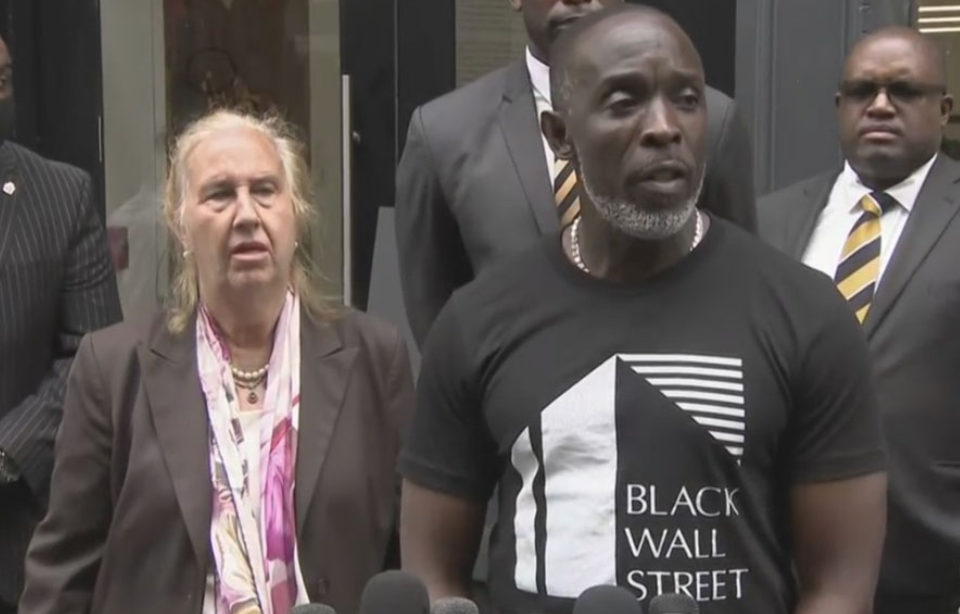
Making Kids Win, A non-profit organization that he established.
Q: Talk about Making Kids Win – it’s fascinating.
MKW: Let me tell you how the whole thing got started. Professor Ogletree was the first one, to my knowledge, started the whole Wire 101 class at Harvard, and he decided to bring a few of the cast mates down to Boston. That turned into this whole thing: I’ve been honored at Harvard, I’ve sat on symposiums with like Skip Gates and the likes of these men. Me – eighth grader from Brooklyn, I’m sitting at Harvard University, it’s like wow!.
And this went on for a few years. And this semester when he started the class he’d bring us back down. Two or three years, this went on. Then the third year, he’s like “So Michael, when are you going to start your nonprofit?” And I’m like, “I guess you want me to start a nonprofit.” He goes, “Now you got it.” I kept running from the idea. He was constantly calling me, he’d call me and call me and badger me about this nonprofit. He had a vision about me with this nonprofit.
One day he called – I call these three ladies the Ghoul Squad, these three young black women. They were all students, and they sat me down and they got me in a room and they said “What is your problem? Tree told us that he big told you. What are you waiting on?” And they kept poking away. And literally – I’m not ashamed to say that – they made me cry. I’m like [yells:] “I’m not smart enough!! I don’t know what I’m doing! I don’t know how to spell nonprofit!”
And they were like, “You don’t have to know what you’re doing. You just have to be passionate.” They said “What would you like to change about your community?” I said “Man, I want to give the kids a chance. I’m tired of hearing these stories about kids getting turned out in the streets or whatever have you.” I said “In my opinion, there is no after school situation for these kids.” I see them in Jersey, I see them in Baltimore, I’m moving around, the work has got me moving from state to state. I’m seeing what Dave was talking about. There’s a Wire in every city. This is not a joke.”
And it was always these kids after school on their way home. I call this the gray area and that’s where the trouble was mostly happening. I said “Let’s create an area til Mommy Daddy gets home, til Mom gets home to be with the kids. They can go somewhere where the kids can be safe after school.” Because I was a [latchkey] kid. But I had to fit my mother. I didn’t want to get punched in the face, so I made sure I was home at 3 o’clock to get her call when she made sure I was home. But that’s not the case anymore. So I wanted to create a situation with kids can be safe and be free. And that means all kids, even gang kids, but no violence. My only rules for this would be no violence, no drugs, and no video games. That’s it.
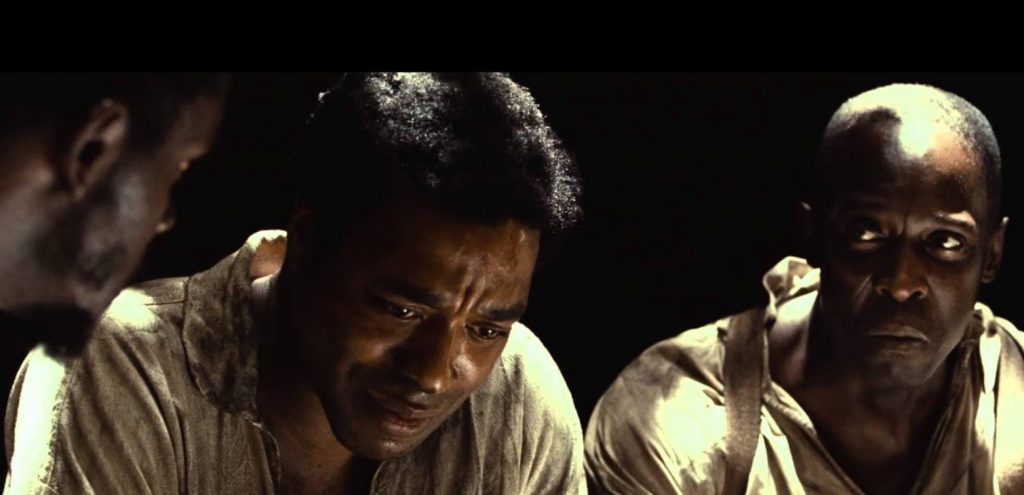
Working on 12 Years a Slave
Q: Another really great film, and it goes back to my question with “Boardwalk Empire”, the difficulty of certain roles. 12 Years a Slave, an unbelievable movie – what did you do when you returned to your trailer or hotel, did you have a therapist? Anybody who went through that, it’s a tough experience. How did you actually do it?
MKW: I didn’t realize what I had done, what that movie was, until I went to the premiere. And I realized, Okay, I got the full thing of what I was a part of. I can’t really explain the experience that I had on the set. There was one scene we did that didn’t make it into the movie. Steve shoots in series sometimes – shooting without cutting, in, in, in.
We had shot this scene where I was being dragged to the boat and then they got me. My character was like the Nat Turner of the crew so he was banging out with them, and they beat the shit out of him and threw him down the hole. So we did this like four or five times, and the fifth time, he cut, and I couldn’t stop screaming and crying. I went into this ball, and I just cried, and I screamed. I looked up and the clouds were moving in like time-lapse speed. It was the most surreal thing – at least, in my mind it was. If I was a betting man, I would think that ancestors came and gave me a glimpse into what really went down, what was really endured. And it broke me down.
Q: Were you surprised when it went on to win the Academy Award™ for Best Picture?
MKW: I felt proud. One of the few times I sat home and watched the Oscars, and I just felt proud to be a part of that. I just hope that the ancestors smiled because we had told their story.
But in the end, it’s not about how can I endure this, it’s about how could our ancestors have endured this? And I have to tell their story.
Diversity in Hollywood (Q&A is from 2016, it predates #MeToo, advancements in diversity, so it might be rather redundant now)
Q: Why are there so few African American movies made?
MKW: I don’t want to make this like a black thing. There should be more black movies, more Hispanic movies, more Asian movies. I want to know about different cultures in the world, not just black and white.
So when we talk about this diversity in Hollywood, it’s not just the black thing. This business of fine line, with crossing – I just think diversity means all colors.
Q: But why do you think there is still such a lack off diversity in Hollywood of stuff being made?
MKW: When I get in that board room, I’m going – we’ve got to get in the rooms where the checks are being cut, where the decisions are being made.
We have to start creating our own studios, like Tyler Perry. We need a Hispanic studio, and Asian studio. But at the end of the day, after having recognized where I think the problem lies, I’m really grateful. I’ve come to the point where I realize I’m a middle-aged man, I know I’m not the sharpest knife in the drawer, I’m very blessed. And for me to be able to say it as a dark-skinned black man in America, that I pay my bills in Hollywood, I realize that I’m a part of a very, very small club. Very small.
So I’m grateful. I just stay focused on the work, so I don’t put my heart out there looking for something to validate me that I don’t need. I stay detached from the awards. If they gave me an Oscar, I’d take it. I would gladly take it and I would have my speech ready. But I stay focused on the work, I chase good writing. I’m a sucker for good writing and good quality actors, and I’ve been really blessed to be around some of the most talented people. I’m growing, I’m learning, and I stay focused on that. At the end of the day, I suggest everybody else do the same.
About the Oscars (Q&A is from 2016, it was conducted before Spike Lee got nomination for the best director for the Oscar in “Blackkklansman”)
Q: What do you think about Spike not being nominated for an Oscar?
MKW: I heard Spike Lee one day in an interview. He was talking about this whole thing with the Oscars. I believe we do ourselves a disservice when we focus our energy on an award or a statue when the real problem is in those boardrooms where the decisions are being made as to how the money is being divided, as to the quota of whatever ethnic projects are coming into the studios. I think that’s where the problem is. We’re watching an awards show and thinking that that’s what’s going to change what’s wrong in Hollywood. You have to go into Hollywood and get at this core: all of this is dollars and cents. How is the money divided, who is in the boardrooms, who is in the greenrooms, who is making those decisions? That’s where we need to have diversity that will trickle down to the awards shows. Because the awards shows will tell you “There’s no black movies. There’s no Asian movies. There’s no Hispanic movies.” And they’re right – there are none. And it’s not because there are people walking around with Hispanic stories or Asian stories or African American stories. There’s a ton of African American stories. And writers and scripts about the Black Movement, the Native American movement, the Hispanic movement, the Asian movement. They’re just not being made.

